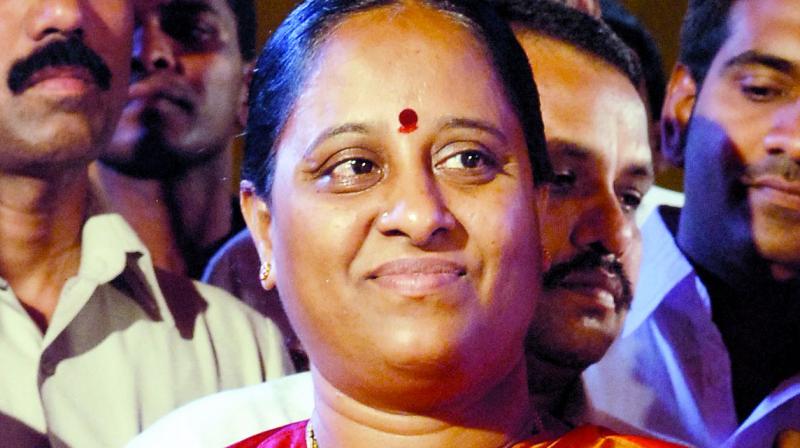Hyderabad: Women legislators outperform men

Hyderabad: Assembly constituencies that have elected women legislators saw higher economic growth. This is evident from the quicker pace in solving civic problems like repair of roads and installing street lights, according to a recent survey. The study analysed the economic impact of electing women in all states and concluded that constituencies with a female legislator were likely to witness more economic growth than those with male legislators.
According to the Economic Survey of India (ESI), only nine per cent of the 4,118 MLAs across India are women, though 48.5 per cent of the population is female.
In the previous general elections, the TRS had nine MLAs — Kova Laxmi from Asifabad, Ajmeera Rekha from Khanapur, Bodige Shobha from Choppadandi, M. Padma Devender Reddy from Medak, Gongidi Sunitha from Alair and Konda Surekha from Warangal. It had fielded 10 women in 2014.
Of the eight Congress women contestants, three won: Dr J. Geetha Reddy from Zahirabad (SC), D.K. Aruna from Gadwal and N. Padmavathi Reddy from Kodad.
One of the reasons for the lower number of women legislators is that political parties provide tickets to only a handful of female candidates. The ratio of female contestants in the previous Assembly elections in Telangana state was below the national average. None of the political parties gave tickets to female candidates in the 14 Assembly constituencies in Greater Hyderabad.
For the December 7 election, the TRS has fielded only four women. The Congress and the BJP have done much better, fielding 11 and 14 women candidates.
When this newspaper spoke to voters in Dr Geeta Reddy’s Zahirabad constituency, they affirmed the results of the study.
Mr Naresh Goud, a voter, said, “Geethamma visits our village twice a month and organises panchayat meetings to inquire about our civic problems. She worked as a channel between the villagers and the district collector. Three large patches of agricultural land, that was under the grab of encroachers, were saved after she took out complaints seriously.”
A voter from Warangal, Mr Vekata Swamy, said, “Warangal is looked upon as a Telangana’s best tri-city after the government built an Outer Ring Road connecting Warangal, Hanamkonda and Kazipet. This helped in the growth of the city. This apart, drinking water supply and street lights facility were improved.
Ms Konda Surekha kept a record of complaints she received and follows them up till the issue is solved.
Female MLAs lead by about 11 percentage points higher growth in output, which translates to an increase in economic growth of about 1.2 to 3.3 percentage points, according to the study. Also, female MLAs work to provide improved access to important public infrastructure such as roads.
“Only female MLAs that are not criminally accused and who are educated have positive effects on growth,” the study noted.
“Political variables suggest that political skills are one reason why female MLAs may lead to higher growth. However, personal qualities, such as a lower likelihood of criminality, which in turn is reflected by a lower likelihood of pending criminal charges and a lower growth in assets and higher education, also seem to be a reason why female politicians are good for growth,” said a senior IAS officer who asked not to be identified.

